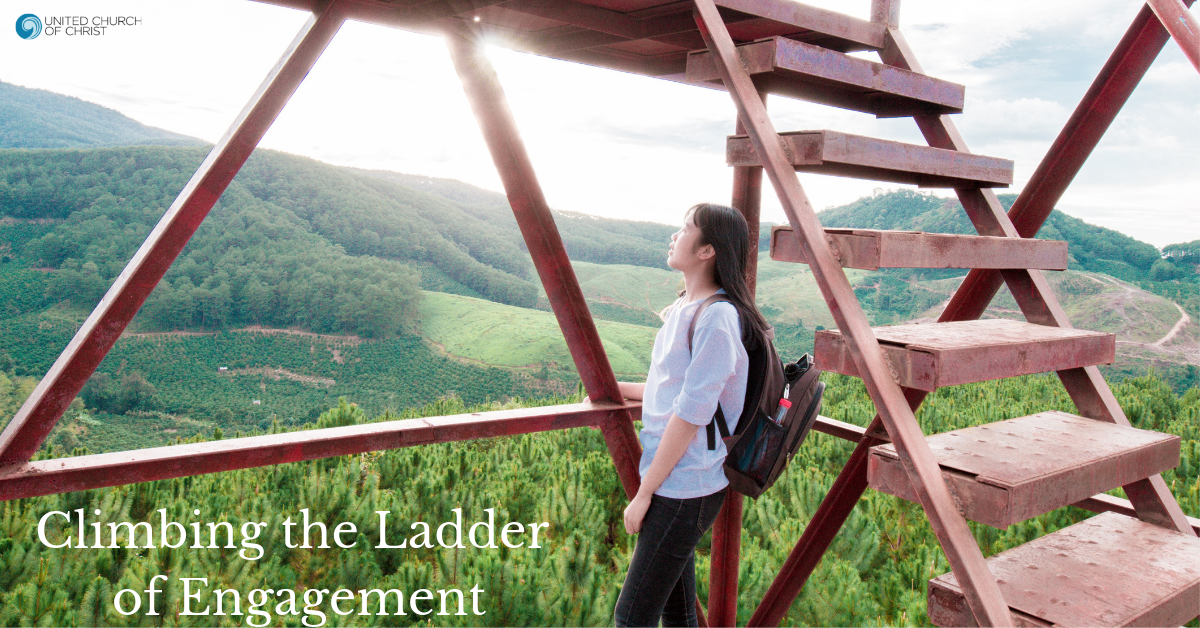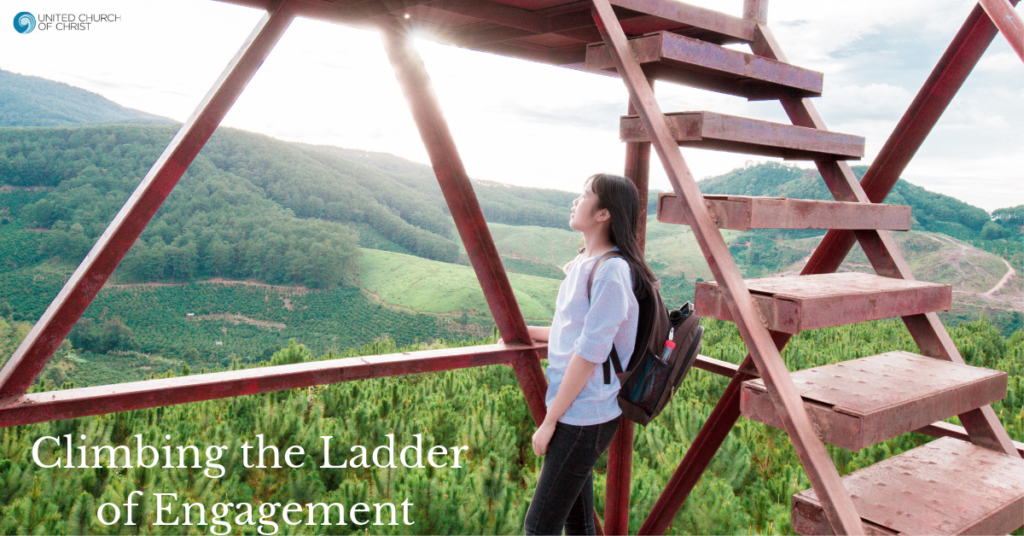Creation Justice: Where Are You Called to Serve?

In Genesis, we find that our first call as people of faith is to tend to God’s creation. In caring for this interconnected world in which we live, this call inevitably entails putting love into action for every living creature and for every economically or racially marginalized community that suffers from environmental harm. When it comes to how we discern this call in more specific terms, one will sometimes hear of “ladders of engagement.” The idea is that people start out with an activity that requires a low bar of commitment and then work their way upward to activities of increasing commitment. While this concept is helpful, history also suggests that sometimes people feel called to jump over rungs on the ladder to the place that they feel compelled to serve in that moment. There are no formulas for how God works in our lives. Look at this ladder of engagement to discern where you and your congregation belong in seeking to care for God’s creation.
- Educate Yourself: Sign-up to receive the Pollinator, the UCC’s Environmental Justice e-newsletter. Check out past Creation Justice Webinars and sign-up for updates about future webinars. Topics include energy efficiency programs for churches, how to go solar, advocacy issues, and more.
- Learn with Others: Start a book group to read books like Brooks Berndt’s Cathedral on Fire: A Church Handbook for the Climate Crisis or Jim Antal’s Climate Church, Climate World.
- Plan with Others: Form a green team at your church. Read these five tips for creating a crew of change makers who can support each other as they offer their talents and gifts in ministry. A group of co-conspirators cultivates sustained commitment and the courage to act.
- Worship with Others: Theologically ground your commitment in community. Earth Sunday is a common time for churches to focus on God’s Creation, but there is also an increasingly popular liturgical season promoted by the World Council of Churches called Seasons of Creation.
- Become an ENERGYSTAR Congregation: Begin close to home by stewarding your church property and saving money at the same time. The EPA recognizes churches whose buildings have achieved notable levels of energy efficiency. A free online program helps congregations track their progress.
- Become a Place for Dialogue and Action: Join with others in your community to foster dialogue and move toward action. The UCC’s Environmental Justice Program partnered with EveryDay Democracy and the Sierra Club’s Ready for 100 program to produce a group discussion guide on clean, just, and affordable energy.
- Become a Lasting Partner for Change: Find a partner organization that can continually keep your church engaged in seeking change. Many churches work closely with Interfaith Power & Light on faith-based climate advocacy, while some affiliate with 350.org to join broad-based activist campaigns.
- Become a Creation Justice Church: Seek to be recognized as a congregation that has made caring for God’s creation a central part of its DNA. In six steps, a church can become designated by the UCC Environmental Justice Ministry as a Creation Justice Church.
- Mobilize to Influence Elected Officials: At your state capital, participate in a legislative advocacy day with members of your church and an advocacy organization like Interfaith Power & Light. The UCC Council for Climate Justice also initiated the Creation Care Voter Pledge to encourage values-based voting.
- Mobilize for Civil Disobedience: Support or participate in carefully planned and spiritually fortified acts of civil disobedience to accelerate the drive for change on pressing issues. Check out the resources of the Center for Climate Disobedience.
Related News
Growing Weary
In December 1964 during a speech in Harlem, Fannie Lou Hamer declared: “And you can always...
Read MoreOur Moral Center
“We've got about 350,000 people who are dying prematurely from the burning of fossil fuels...
Read MoreChapter Resources
Check out the latest resources for our local Climate Hope Affiliates: December Monthly...
Read More

